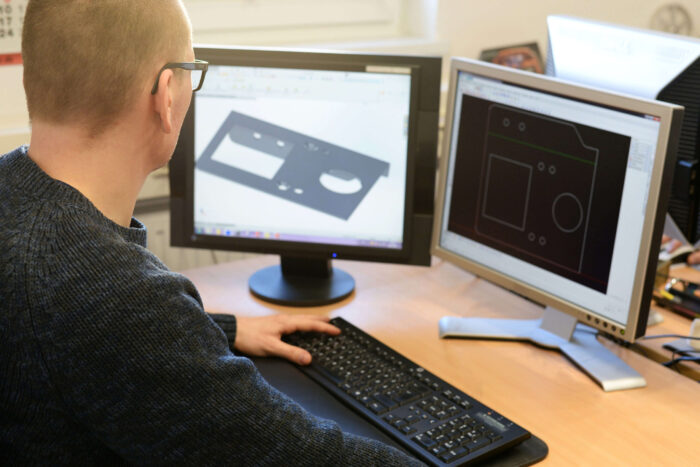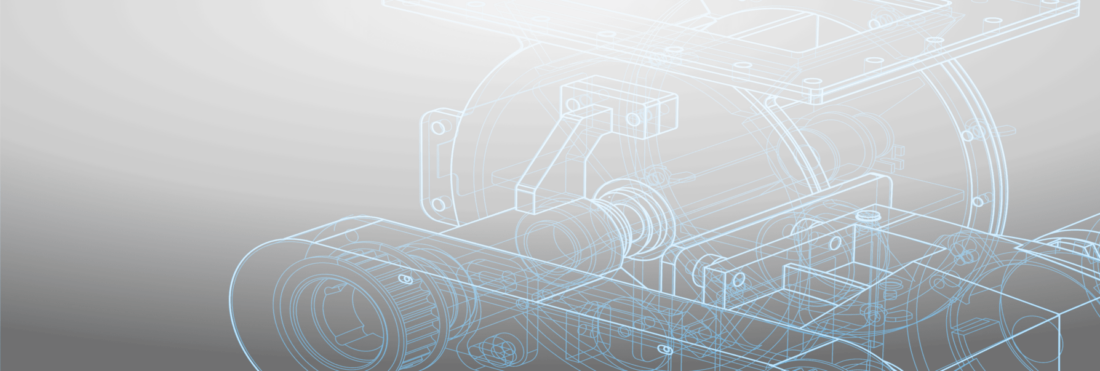
How ERP Software Transforms Your Business?
An Enterprise Resource Planning (ERP) system is a powerful multifunctional tool that will improve your entire business. By integrating every department into one centralized system, ERPs streamline workflows, enhance productivity, boost throughput and reduce costs. From the top floor to the shop floor, ERPs give you greater insight and visibility into your operation, making your business run smoother and more efficiently.
What is ERP Software?
Before exploring how an ERP can benefit your business, you must first understand what an ERP is. ERP stands for Enterprise Resource Planning, and at its most basic level, it is a system that connects and integrates all the different aspects of your business—such as finance, production, and supply chain management—into a single platform. ERP software lets you streamline your processes and share accurate information across your company.
The core feature of any ERP system is its shared, centralized database, which supports multiple functions across your business, and can be used by every department in your organization. This means employees can access the same accurate data, reducing duplicate entries and ensuring consistency across departments. This centralization creates a single source of truth, improving collaboration and decision-making and helping your employees do their jobs more efficiently and effectively.
By integrating all of your various business functions into one system, an ERP lets you manage your operations more effectively, improving overall performance, and helps you get orders out the door—and into your customer’s hands—faster.
Why ERP Software is Essential?
All businesses can benefit from an ERP system.
Not so long ago, there were only a few ERP providers in the marketplace, and they focused on large-scale enterprises. But today, ERPs are no longer just for large businesses; ERP vendors exist for every industry, size, and specialty. Small and medium-sized businesses (SMBs) can benefit from these industry-specific ERP solutions, and there is an ERP system out there tailored to meet your needs.
The best ERP for you will be unique to your business and will depend on your industry, size, budget, and needs. Some of the biggest name-brand ERPs may be the best solution for a multinational organization, but they will not meet the needs of an SMB just starting out. It’s essential to evaluate your business and choose a system that aligns with your goals. The right ERP software for you will specialize in your business line and have the features you need to improve your business.
The Key Benefits of ERP Software
A good ERP system helps boost efficiency and cut costs by streamlining tasks and processes while making it easier to share information across your organization. An ERP automates key business functions like order processing, production and financial management. This reduces human error and frees your staff to focus on more important tasks, ultimately increasing productivity.
Implementing an ERP in your shop will give you many benefits, including:
- Increased efficiency: Automate routine tasks and processes, like purchasing, freeing time for employees to focus on strategic initiatives.
- Lower operating costs: Reduce operating costs by improving inventory management and optimizing production.
- Improved accuracy: Centralized data reduces errors and provides real-time insights for better decision-making.
- Enhanced collaboration: ERP systems improve communication between departments, enabling a more collaborative environment.
- More jobs delivered on time: Streamline production planning and scheduling to ensure timely delivery of projects and orders.
Improved Accounting and Financial Management
An ERP system simplifies financial management for your accounting department. Using one system makes accounting easier and saves time and money by eliminating the need to cross-reference and re-enter the same data into multiple systems and spreadsheets. Instead, your team can use a single platform to manage all accounting and financial operations. This integration improves accuracy and speeds up tasks such as:
- Job costing: Accurate cost calculations help your business optimize pricing and improve profit margins.
- Financial reporting: With real-time data, financial reports are generated faster, giving you the insights needed to make informed decisions.
- Cash flow management: Gain better control over your cash flow with accurate, up-to-date financial data.
ERP for Engineering Teams
In custom manufacturing environments, ERP software is invaluable for engineers. ERPs can help engineers do their jobs more efficiently and effectively, reducing the amount of engineering time needed on each job you do. Engineers in custom manufacturing environments use CAD software to create large and complex CAD models. But, one of the most cumbersome and detailed tasks of the engineering department is to create a bill of materials (BOM) from a CAD model and then upload it into an ERP.
A manufacturing-specific ERP will automatically link your CAD system with your ERP to allow this critical information to flow freely from your CAD system into your ERP. By integrating with CAD software, engineering teams can automatically generate bills of materials (BOMs) from CAD models. This reduces manual data entry, saves time, and minimizes errors, allowing engineers to focus on designing rather than administrative tasks.
Optimized Project Management with ERP
ERP systems are also excellent project management tools. With milestone tracking, priority management and real-time progress updates, you can easily monitor project timelines and ensure jobs are completed on schedule. With an ERP, you will move beyond the whiteboard to a more efficient and effective project management system.
With real-time visibility into all ongoing projects, you can deliver more jobs on time, boosting customer satisfaction. You’ll always know what tasks must be completed, their progress, and the exact stage of every job in your shop. An ERP system provides complete oversight, allowing you to manage and monitor every job more effectively across your entire shop.
Enhanced Sales and Customer Relationships
Keeping customers happy is the most important thing you can do to ensure repeat business. If your customers like what you are doing, they are likelier to stay loyal—and recommend you to others. Although customers won’t directly interact with your ERP, it plays a significant role in improving customer satisfaction.
ERP systems help you provide accurate quotes, deliver products on time, and respond to customer inquiries more efficiently. Streamlining your operations ensures a better customer experience, fostering loyalty and repeat business.
A good manufacturing-specific ERP system will also include a CRM or customer relationship management tool. CRMs are powerful tools that help you manage the sales process. They allow you to easily keep track of customers and their order history, identify new business opportunities and sales leads, streamline sales tasks to reduce repetitive work, and provide better support to existing customers.
Inventory Management Made Simple
Effective inventory management is crucial for maintaining efficient operations. But, an inventory management system alone can’t effectively optimize your inventory unless it is integrated with the rest of your business operations. This is where an ERP comes in.
An ERP system integrates inventory data with other departments, giving you real-time visibility into stock levels, order statuses, and raw material availability. This lets you avoid stock shortages, optimize production planning, and improve overall efficiency. The accuracy of an ERP system gives you the confidence that what is recorded in the system matches what is sitting on your shelf, making planning and production more efficient and financial reporting easier.
Conclusion: Why an ERP is a Must-Have for Your Business
Investing in an ERP system can transform how your business operates. By integrating all your departments into a single system, you’ll reduce costs, increase efficiency, and improve collaboration. With better insights and automation, your business will be better positioned to meet customer demands, streamline operations, and grow.
Get your eBook Scared to implement a new ERP?
"*" indicates required fields



